Services
St George’s University Hospitals NHS Foundation Trust is one of London’s leading teaching hospitals with an international reputation for quality of care and cutting-edge treatment. In this area you will find detailed information on all the services we provide. We provide services to both children and adults.
Need to change or cancel your outpatient appointment? You can change or cancel your appointment at St George’s Hospital online via our appointment amendment form.
Filter services
Site
Service
A

Anaesthesia
The Anaesthesia team St George’s Hospital provides expertise in anaesthetic specialties. Our team includes over 100 consultants and 60 trainees from the St George’s School of Anaesthesia.
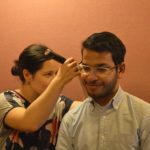
Audiology and Audiovestibular Medicine
Our Audiology and Audiovestibular Medicine team specialises in diagnosing and managing hearing and balance disorders. We provide specialist care for patients of all ages, offering comprehensive audiovestibular services.
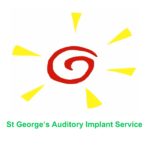
Auditory Implant Service
A cochlear implant is a small, complex electronic device that can help to provide a sense of sound. We offer cochlear implants for both adults and children with profound sensorineural hearing loss.
B
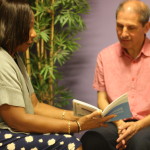
Bereavement Services
If your loved one has died at St George’s, the Bereavement Services team are here to help you. We can guide you through the necessary steps following your bereavement. We also work with clinical teams to ensure that all necessary steps are taken, and paperwork completed.
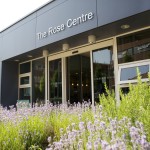
Breast Service at The Rose Centre
The Breast Service at St George’s is based predominantly at the Rose Centre building which provides a comprehensive service for patients which includes initial consultation and diagnostic services in the same location.
C

Cancer Services
St George’s Hospital serves as a Cancer Centre for South West London, offering high-quality diagnostics, care, and treatments for complex cancer cases. We provide specialised services for regional and supra-regional patients, focusing on complex surgical oncology.

Cardiac Sarcoid Clinic
Our Cardiac Sarcoid Clinic specialises in diagnosing and managing sarcoidosis, particularly when it affects the heart. We provide comprehensive care to manage this rare condition, which involves inflammation and immune cell clusters in various organs.

Cardiac Surgery
St George’s Hospital is a leading centre for cardiac surgery in the southeast of England, performing over 700 operations annually. Our team includes seven consultant cardiac surgeons, supported by a multidisciplinary team of cardiologists, nurses, and other specialists.
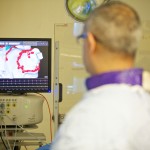
Cardiovascular
Since its first inception in 1954, the St George’s Hospital Cardiology department has been at the forefront of providing pioneering specialist cardiology care to our patients

Care Home Therapy In-Reach
The Care Home Therapy In-Reach team provides therapy support for residents in Wandsworth Older People Care Homes using a holistic, preventative, and collaborative approach.
Our team is a specialist, community-based, multidisciplinary team, working in line with the Enhanced Health in Care Homes Framework (DOH, 2023).
Roles within the team include Physiotherapist, Dietitian, Occupational Therapist and Speech & Language Therapist.
What we do
We take a proactive and preventative approach to healthcare for people living in care homes by:
Providing direct support to residents and care homes to promote physical activity, engagement and nutritional well-being.
Delivering training tailored to the needs of staff and residents.
Collaborating with other services to ensure holistic, person-centred care.
How we can help
We offer expert advice and support to care home staff to enhance residents’ quality of life:
Functional support – Guidance on meaningful activities, nutrition, walking aids, communication and accessing the right services.
Staff training & support – Sessions on falls risk management, dysphagia, contractures, malnutrition, and more.
Raising awareness – Attend Multidisciplinary Team Meeting with all care homes and help staff and residents understand the importance of therapy input in care homes.
Our impact
We work closely with care homes and community services to improve the well-being of older people by:
Reducing avoidable hospital admissions
Minimising falls risk
Recognising early signs of deterioration
Encouraging residents to stay active & prevent deconditioning
Enhancing staff knowledge on dysphagia, nutrition, activity & dementia
If you have any questions about our work with Wandsworth care homes or the scope of our interventions, please reach out.
If you are a service linked with care homes, we welcome collaboration to enhance care provision for residents. Please get in touch – we’re keen to hear from you. . . .
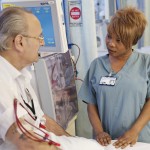
Carotid atherosclerosis
In conjunction with the regional stroke unit, the St George’s Vascular Institute offers a comprehensive service for patients with carotid atherosclerosis.

Chest medicine
The Respiratory Department at St George’s Hospital offers comprehensive care for respiratory diseases. Our team is dedicated to providing outstanding clinical services for our patients in southwest London and beyond.

Children's services
St George’s University Hospital has a proud history of offering specialist children’s services, providing a mix of care and specialist treatments. We serve children in Wandsworth, Merton, South West London, Surrey, and beyond.

Clinical Pharmacology and Therapeutics
The Clinical Pharmacology and Therapeutics department at St George’s Hospital focuses on the science of drugs and the safe use of medicines. We have one of the largest groups of clinical pharmacologists in the country.

Community services
We provide a full range of community services to patients for people who live and work in Wandsworth, making sure people can manage their health better by accessing the services they need closer to where they live and work, and in their homes.

Covid-19 medicines delivery unit (CMDU)
The Covid-19 medicines delivery unit (CMDU) is based at the Bence Jones Unit, Blackshaw Road, St George’s Hospital. We provide new Covid-19 treatments to people at the highest risk in south west London that have tested positive for Covid-19.
D

Day Surgery Unit
The Day Surgery Unit allows you to be admitted to St George’s Hospital for surgery for a procedure and to be discharged home on the same day. It’s for patients who do not need to stay overnight on a ward and makes the surgery more convenient for them.

Dentistry
Our Dentistry department includes Restorative Dentistry, Orthodontics, and Paediatric Dentistry. We work closely with the Oral and Maxillofacial department to provide comprehensive care.
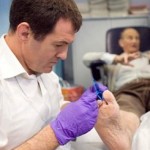
Diabetes and endocrinology
Our Diabetes and Endocrinology departments, located at St George’s Hospital, Queen Mary’s Hospital, and St John’s Therapy Centre, specialise in managing diabetes and hormonal disorders.

Diagnostic services
At St George’s, we provide the following diagnostic services: Blood Testing Services, Cellular Pathology, Haematology, Immunology, Chemical Pathology, Day Case Unit, and Medical Microbiology.
E
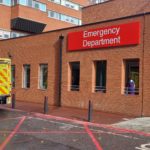
Emergency Department (A&E)
Our busy, modern Emergency Department operates 24/7, providing emergency medical care to approximately 150,000 patients annually.
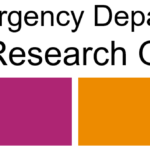
Emergency Department Collaborative Research Group
The Emergency Department (ED) at St George’s leads and participates in a number of research projects through the work of the Collaborative Research Group. The group is part of St George’s Translational and Clinical Research Institute, a joint initiative between the Trust and St George’s, University of London.
G

Gastroenterology
Our Gastroenterology and Hepatology Department teams specialise in diagnosing and treating conditions of the gastrointestinal tract, liver, pancreas, and biliary system.

General Intensive Care
The General Intensive Care Unit (ICU) cares for the most critically ill patients. We diagnose and treat nearly any acute illness using advanced monitoring, organ support therapies, and complex treatments.

General medicine
The General Medicine team provides specialist medical care for a range of conditions, including emergency admissions, gastroenterology, endocrinology, diabetes, respiratory medicine, rheumatology, and cardiology.
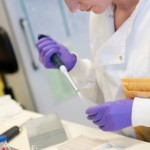
Genomics - South West Thames Centre for Genomics
The South West Thames Centre for Genomics at St George’s offers specialised genetic services, including diagnostics and counselling, to patients in South West London, Surrey, and West Sussex. Our UKAS accredited laboratory provides diagnostic analysis and reporting for genetic disorders.

Gynaecology
The Gynaecology service at St George’s and Queen Mary’s Hospitals provides expert care for women’s reproductive health, including diagnosis and treatment of various conditions.
H

Hand Therapy
Our Hand Therapy service helps patients recover from upper limb injuries and conditions, offering a range of therapeutic interventions to restore function.

Hand Unit
The Hand Unit at St George’s Hospital provides comprehensive care for hand and wrist issues, including acute injuries and long term conditions.
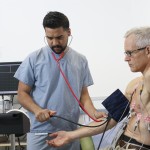
Heart valve centre
The Heart Valve Centre at St George’s Hospital specialises in diagnosing and treating cardiac conditions, including valve diseases, aortic disorders, and arrhythmias.

Hepatology CAS
Our Hepatology Clinical Assessment Service offers specialised care for liver, pancreas, and biliary conditions, streamlining the patient journey from referral to treatment.

Hysteroscopy coordinator
Consultant led. . . .
I

Integrated Sexual Health
The Wandsworth Integrated Sexual Health (WISH) service
Please note: From 1 October 2017, responsibility for the running of Wandsworth Integrated Sexual Health Services (not including services for patients with HIV) will transfer to Central London Community Healthcare NHS Trust (CLCH). Services for patients with HIV will continue to be provided by St George’s.
For more information on other services in south west London please go to: www.swish.nhs.uk or www.gettingiton.org.uk
For more information of the Central London Community Healthcare NHS Trust service from 1 October, please see their website here: www.shswl.nhs.uk
. . .
L
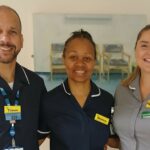
Learning Disabilities
The Learning Disability team supports patients with learning disabilities and their families, ensuring they receive appropriate care and assistance during their hospital visits.

Liver (Hepatology)
Our Liver service manages a wide range of liver, pancreas, and biliary conditions, including cirrhosis, alcohol-related liver diseases, and liver cancers.

Living with and beyond cancer
Cancer related concerns
Joint Pain
Nausea
Mobility and Physical activity
Chronic Pain
Bone health
Sleep
Dental
Nutrition
Cardiac health
Fertility
Falls
Visual Loss
Balance and Dizziness
Breathlessness & cough
Vaginal Dryness
Weight change
Hot Flushes & Night sweats
Incontinence
Lymphoedema
Hearing Loss
Fatigue
Cognitive Changes
Speech and Language Therapy
Loneliness
Body Image
Mood
Anxiety
Existing Mental Health
Health related behaviour
Sexual function
Financial
Return to Work
Return to education
Peer Support (support groups)
Cancer specific support
Social Care
Community mental health
Weight change
Stratified Follow up programmes
TYA – Paediatric transition
Carers. Supporting people living with and beyond cancer
Community palliative care
Psychological Support
Immunotherapy Toxicities
Peripheral Neuropathy
Pelvic and abdominal consequences of cancer (SPARC service)
. . .
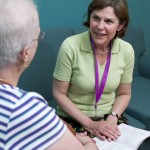
Lymphoedema
Our Lymphoedema service provides assessment, diagnosis, and treatment for patients with primary and secondary lymphoedema, offering ongoing support and care.
M
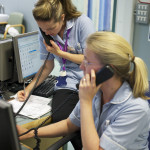
Major Trauma Centre
St George’s Hospital serves as the major trauma center for the South West London and Surrey trauma network. We treat approximately 120 trauma patients monthly, for severe injuries, such as stabbings, gunshot wounds, and serious road traffic accidents.

Make a Tertiary Referral
Pathway for tertiary referral to the pelvic & acetabular team at St George’s hospital
Dial: 0208 672 1255
Bleep: 7064
Monday to Friday (07:30 to 16:00):
Your call will be answered by the Pelvic CNS
All other times (& when the Pelvic CNS is either on leave or is not on-site at St. George’s Hospital):
Your call will be answered by the On-call T&O SpR
Your referral will be discussed with you for vetting purposes (to identify patients who require urgent transfer to St. George’s Hospital)
If urgent transfer to St. George’s Hospital is not required you will then be asked to complete a referral proforma in FULL electronically.
(A copy of the up to date proforma can be sent to you but should be available to you within your own Trust)
You should then send the FULLY completed referral proforma as a word document attachment to:
pelvicreferrals@stgeorges.nhs.uk
The list below denotes patients who ARE NOT suitable for tertiary referral.
1) Polytrauma / Major Trauma triggering secondary transfer process
2) Haemodynamic instability due to pelvic / acetabular injuries
3) Neurological instability due to pelvic / acetabular injuries
4) Irreducible or unreduced hip dislocations
5) Open pelvic fractures (urological, gynaecological, perineal, colorectal, abdominal, groin or buttock soft tissue trauma resulting from pelvic injury)
6) Open book pelvic fractures
7) Vertical shear pelvic fractures
These groups require urgent transfer to YOUR designated Major Trauma Centre (please be aware that this may not be St. George’s Hospital).
The Pelvic Team, led by the Pelvic CNS, will then pick up, review, action & officially respond in writing (using our existing outcome proforma to ensure a detailed plan is communicated) to all referrals, usually with 72 hours. . . .
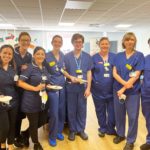
Maternity
St George’s Maternity Unit offers comprehensive care during pregnancy, birth, and postpartum. We recommend completing an online self-referral form by 7 weeks of pregnancy to schedule your midwife appointment.

Mental Health and Wellbeing
Our Mental Health and Wellbeing service provides support and resources for mental health issues, aiming to improve life expectancy and quality of life for those with serious mental illnesses.

Myoma Service
Consultant led. . . .
N

Neuro-sciences Intensive Care
The Neuro Intensive Care Unit provides a tertiary referral neuroscience acute level of care with physiological monitoring, neurological supportive therapies and complex treatments that necessitate a high staff to patient ratio of a highly skilled, multi-professional team.
Care of acutely unwell patients at risk of, or, following the development of, an acute neurological condition (including trauma, haemorrhage, stroke) and complex post-operative recovery.
We take a range of patients for the following causes:
Poly trauma
Head injury trauma
Spinal injury trauma
Elective Brain and spinal surgery
Neurology
. . .
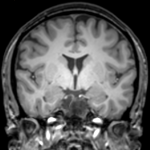
Neurosciences Centre
The Atkinson Morley Regional Neurosciences Centre at St George’s Hospital offers internationally recognised care for neurological conditions, including neurology, neurosurgery, neurorehabilitation, and stroke services. Our comprehensive services cover diagnosis, treatment, and care for disorders of the brain, spinal cord, and nervous system.
O

Occupational health
Our Occupational Health service supports staff health and well-being, offering a range of services to prevent work-related illnesses and manage health issues or disabilities.

Orthotics service
The Orthotic Clinical Service aims to provide a comprehensive inpatient and outpatient orthotic service to aid movement, correct deformity and relieve discomfort. The team specialises in complex rehabilitation problems for patients with musculoskeletal, degenerative and/or neuromuscular problems; many of which utilise our large range of multidisciplinary teams.

Outpatients
St George’s Hospital offers over 1,000 outpatient clinics weekly, providing assessment, diagnosis, and treatment by doctors and specialist nurses.
P
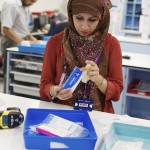
Pharmacy
The Pharmacy Department manages all aspects of medicine use at St George’s Hospital, offering 24/7 services, specialised medicines, and a helpline for medication inquiries.

Plastic and Reconstructive Surgery
The Plastic Surgery Unit offers comprehensive care across both elective and emergency services, specializing in reconstructive procedures. Our team of expert consultants focuses on key areas, such as skin oncology, breast reconstruction, microsurgery, and hand surgery. We provide advanced treatment options for conditions such as skin cancer, breast cancer-related mastectomy and traumatic hand injuries, utilizing cutting-edge techniques. With a commitment to clinical excellence, our unit is a leader in innovative surgical care and patient-centered treatment.
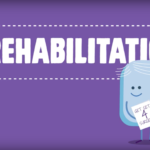
Prehabilitation before surgery with our Get Set 4 Surgery programme
Our Get Set 4 Surgery programme encourages physical and mental preparation before surgery, aiming to reduce complications and improve recovery outcomes.

Private Patient Service
St George’s welcomes private patients from the UK and abroad. We offer a wide range of advanced treatments and diagnostic procedures and our world-renowned consultants are leaders in their respective fields, treating conditions simple to complex.
R

Rehabilitation services
Our Rehabilitation Service at Douglas Bader Rehabilitation Centre offers specialised care, including prosthetics. The Gait Lab offers detailed walking analysis and functional electrical stimulation (FES) to support neuro-rehabilitation, orthopaedic surgery, and more.

Renal
St George’s Hospital offers comprehensive nephrology services, including kidney transplantation, for patients in South West London, Surrey, and Sussex.

Reproductive Medicine Service
Consultant led. . . .

Resuscitation courses
Resuscitation Services Advanced National courses
What do we offer:
At St Georges we offer 5 advanced courses, these include:
Advanced life support (ALS 2-day & 1-day eALS)- RCUK
European Paediatric Advanced Life Support (EPALS)- RCUK
Advanced Paediatric Life Support (APLS) – ALSG
Newborn Life Support (NLS)- RCUK
GIC (Generic instructor course) – RCUK & ALSG
How to apply:
1. Complete an online application form using the links below (you do not need to send any documents to us):
Apply for Weekday Courses (Internal staff only)
Apply for Weekend Courses
2. Await an email from the course director a few weeks before the course with an ‘offer of place’ and instructions on how to arrange payment and confirm your place. Please read all email correspondence.
Instruct on a course
If you are a qualified instructor and would like to teach on our courses, please fill out an application using the links below and we will be in touch! The same links are also used to apply for instructor candidate places.
Instruct on a course
Instruct on a weekend course
Candidate eligibility
The following is taken from the Resus Council UK Advanced provider course regulations 2025:
ALS 2-day course, e-ALS
Healthcare professionals working in acute care areas (e.g. ED, CCU, ICU, HDU, operating theatres, acute medical admissions units) or on resuscitation/medical emergency/ICU outreach teams. All applicants must hold a professional healthcare qualification or be in training for a professional healthcare qualification. Medical students in their final year of training can be accepted as candidates if this is an established local arrangement
EPALS
The EPALS course is designed for healthcare professionals who need skills in managing deteriorating paediatric patients and paediatric cardiac arrests. It is for individuals who use skills in advanced paediatric life support as part of their clinical duties, as well as those who teach on a regular basis. All applicants must hold a professional healthcare qualification or be in training for a professional healthcare qualification. Medical students in their final year of training can be accepted as candidates if this is an established local arrangement.
NLS
The NLS course is designed for healthcare professionals involved in the delivery and care of newborn infants in the out-of-hospital setting. This includes junior/senior medical and nursing staff, midwives, paramedics, resuscitation practitioners, maternity support workers and student midwives. Medical students in their final year of training can be accepted as candidates if this is an established local arrangement.
Contact us
Email: resus.services@stgeorges.nhs.uk
Phone: 020 8725 1648
Available Monday to Friday 8am to 6pm
Resus council website: Home | Resuscitation Council UK
. . .
S
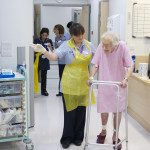
Senior health
Our Senior Health service focuses on managing medical and social aspects of illnesses in older adults, providing comprehensive assessments and coordinated care plans.

Social Communication Difficulties Service (including Autism)
Autism is a neurodevelopmental disorder characterised by difficulties with social communication, interacting with others and restrictive and repetitive behaviour and/or interests. This is sometimes called ‘the dyad of impairments’.
Although it may sometimes feel that the assessment focuses on difficulties, we will certainly also be looking for children’s strengths and recognise that people with neurodiversity absolutely have many strengths in many different areas.
The term ‘spectrum’ means that the characteristics of Autism will vary between individuals. Therefore, a ‘one size fits all’ approach to assessment does not work.
That is why, at St George’s NHS Foundation Trust, we take a holistic and individualised approach to assessing children and young people within our catchment area.
Autism spectrum disorder (ASD) is a diagnostic name given the characteristics described above. This wording or explanation does not fit everyone, and we would encourage families to decide between them how they wish to explain and understand any potential diagnosis of Autism.
We would also encourage parents/carers to allow their children to explore what term, if any, fits for them when they are appropriately aged to do so.
Information for referrers
Information for parents and carers
Forms and documents
Frequently asked questions
How to contact us
If you are worried about your child, please note this is not an emergency or mental health crisis service.
If you notice your child’s health is deteriorating or your child is in immediate danger, please call 999 or go to A&E.
If you need urgent help for your child’s health call 111, contact your GP for further advice.
Further resources
Support for patients, parents and families: ADHD, ASD
Partners: Wandsworth Autism Advisory Service (WAAS)
Special Educational Need or Disability (SEND): Wandsworth Offer
Paediatric Occupational Therapy Service
Paediatric Physiotherapy Service
Speech and Language Therapy Service
Family Information Service – Wandsworth
. . .

South West London Adult Critical Care Network
The SWL Adult Critical Care Network offers specialised intensive care across multiple hospitals, including St George’s, ensuring advanced care for critically ill patients.

Southwest London Post-Covid Specialised Assessment Service
COVID-19 rapid guideline: managing the long-term effects of COVID-19
. . .

Specialist Medicine
Our Specialist Medicine services encompass infectious diseases, dermatology, rheumatology, and hepatitis C treatment, offering both inpatient and outpatient care.

St George's Breast Education Centre Faculty
Our Breast Education Centre offers expertise in breast diagnostics and treatment, with a multidisciplinary team supported by partnerships with Kingston University and St George’s Medical School.

Stop smoking service
We encourage those admitted to the hospital to seek support for quitting or temporary abstinence through nicotine replacement therapy, with the hospital’s stop smoking service offering advice and support during and after your stay.

Surgery
St George’s Hospital offers a wide range of surgical services, including children’s, general, maxillofacial, plastic, pre-operative, and vascular surgery.
T

The Southwest Thames Paediatric Epilepsy Network (SWTPEN)
What is the SWTPEN?
The SWTPEN is a clinical network of health professionals responsible for the care of children and young people with epilepsy in the Southwest Thames region.
This includes the London boroughs of Wandsworth, Merton, Kingston, Richmond, Sutton and Croydon and parts of Surrey and Sussex served by the following hospitals:
Royal Surrey County Hospital, Guildford
St Peter’s Hospital, Chertsey
East Surrey Hospital, Redhill
Worthing General Hospital, Worthing
Our Vision:
To provide accessible, high quality care for all children with epilepsy in the Southwest Thames region.
Our Mission:
1. Develop and maintain clinical guidelines (based on national guidelines), care pathways and resources
2. Share standards for service provision and outcome measures through collaborative audit
3. Support the continuous professional development of members through quarterly meetings and an annual educational conference
4. Facilitate the involvement of families and carers in epilepsy research through links with City St George’s University of London
Upcoming events:
SWTPEN Autumn meeting (online) 10 October 2025
Past events:
SWTPEN Spring meeting – Young Epilepsy 25 May 2025
. . .

Therapies
Therapy Services at St George’s Hospital offer integrated, multi-professional care for inpatients, outpatients, and patients at home. We provide services, such as neurorehabilitation for neurological conditions, and also provide outpatient care and in satellite clinics at GP practices and St John’s Therapy Centre in Battersea

Thoracic surgery
Our Thoracic Surgery service treats chest conditions, including lung cancer, using minimally invasive techniques for both planned and emergency procedures.
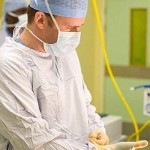
Trauma and orthopaedics
The Trauma and Orthopaedics department offers comprehensive care for bone, joint, muscle, ligament, and nerve conditions, including complex surgeries and a dedicated Pelvic Unit.

Tuberous Sclerosis Complex (TSC) Clinic
Our Tuberous Sclerosis Complex (TSC) service provides comprehensive care, addressing non-cancerous growths in various organs. Our team includes specialists from genetics, nephrology, neurology, and more.

Twins Trust Centre for Research and Clinical Excellence
The Twins Trust Centre offers specialised care for multiple pregnancies, including comprehensive antenatal, fetal medicine, and neonatal services.
U

Urology
The Urology Department at St George’s Hospital offers comprehensive services, including advanced robotic surgery using the Da Vinci® Xi robot for cancers and specialised care for benign and malignant urological conditions.
W

Wandsworth Children’s Social Services Occupational Therapy (CSS OT)
Our CSS OT service supports children and young people (0-17 years) with disabilities or long-term conditions, offering assessments, equipment, and adaptations to help manage daily tasks.

Wolfson Outpatient Cognitive Rehabilitation Services (WOCRS)
WOCRS is a tier 4 specialised service with a single point of access for all assessment and treatment programmes. Assessment for suitability is funded by NHSE but any subsequent recommended treatment programme is funded by the patient’s local clinical commissioning group (CCG). Patients triaged as suitable will be invited to attend a multidisciplinary assessment. We have a range of day patient services, predominantly suited to patients with higher level cognitive and communication impairment:
Intensive day patient neurorehabilitation
Patients can attend up to five days a week (after assessment of need) to work on predetermined goals. As well as individual sessions with the interdisciplinary team, there are also opportunities to attend groups. Goal planning meetings with the treating team occur regularly.
Vocational rehabilitation
The Vocational Rehabilitation team support patients back into employment, through a tailored approach. The team provide assessment, guidance and support, helping clients regain their confidence.
A three-phase programme run by occupational therapists, a speech and language therapist and a clinical neuropsychologist; consisting of an assessment, a group programme and ongoing support in order to work towards vocational goals.
The programme is available to patients living in London and the surrounding areas. Referrals are accepted from healthcare professionals (NHS), GPs, other NHS hospitals and community teams. To be eligible the client must be over 16, independent in personal care, have completed all medical investigations and neurorehabilitation, demonstrate a clear commitment to returning to work.
Wolfson Cognitive Assessment Programme (WCAP)
This is a four-day assessment programme, where patients attend once a week for detailed assessment with each member of the multidisciplinary team. During this time, they will meet with a keyworker to formulate goals and steps to achievement, based on their assessment results. The assessment can be used for differential diagnosis, recommendations for rehabilitation prescription and/or disability management.
Group therapy
WOCRS can provide a range of tailored interdisciplinary-run groups including fatigue management, adjustment, cognitive-communication disorder, brain injury education, emotional regulation, intensive compensatory aid training, relaxation and cognitive strategy.
Location
Wolfson Outpatient Cognitive Rehabilitation Services
Ground floor, Queen Mary’s Hospital
Roehampton Lane
Roehampton
SW15 5PN
General enquiries: Wolfson.wocrs@stgeorges.nhs.uk . . .

